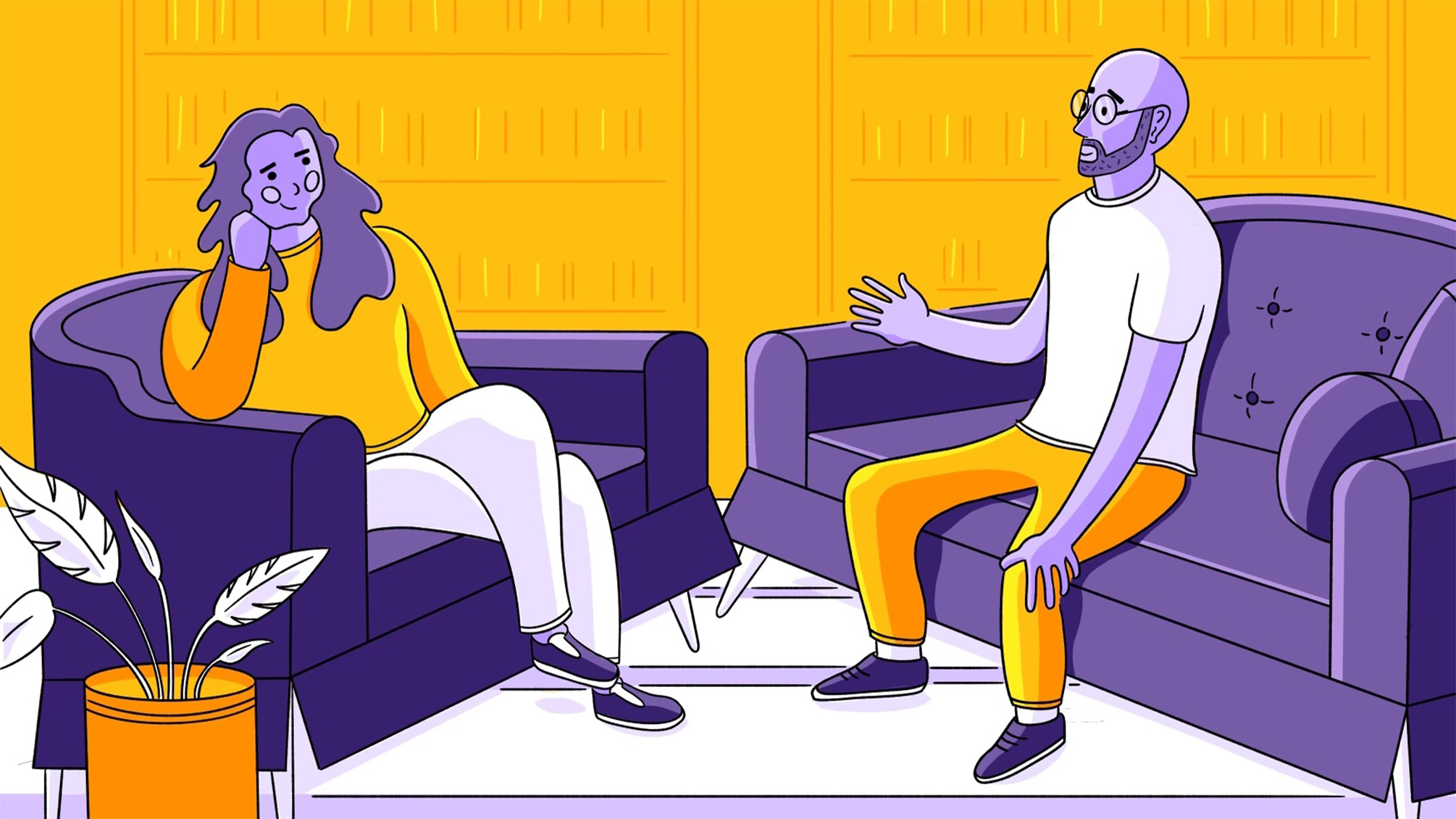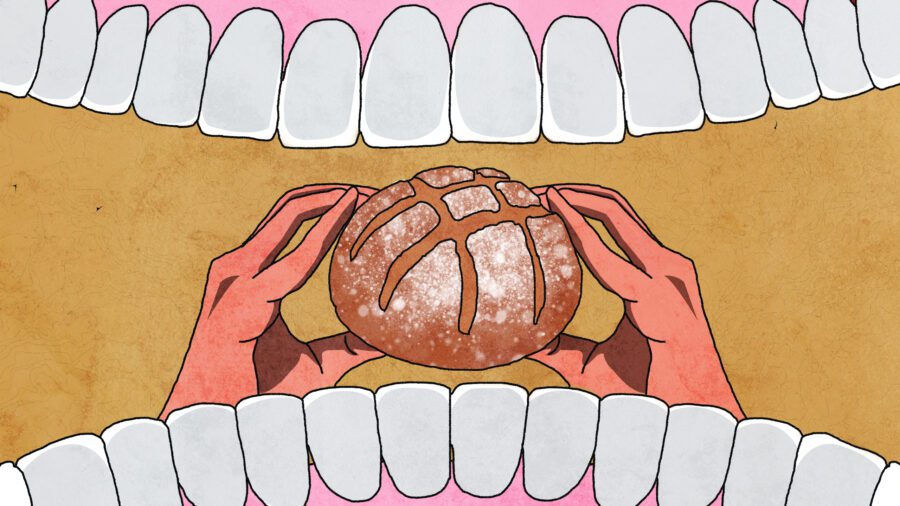
5 Reasons Why Therapy Is for Everyone (Plus, How to Get Started)
You are not alone if you struggle with mental health.
One of the most common lies we tell ourselves about mental health is that we need to work through it independently. Whether we feel we’ll be misunderstood or that our trauma is something we shouldn’t share, we deny ourselves a path to healing when we refuse to seek help.
Much of the reaction to isolate ourselves when processing trauma stems from the stigma surrounding mental health, but the only way to reduce it is to take steps toward honesty and openness when it comes to mental health concerns. What we need to realize, however, is that everyone has past trauma, and everyone needs an outlet for mental healing.
Why Therapy Is Important for Everyone
We often rationalize every excuse not to talk to therapists about our mental health challenges. Maybe it’s because we hold onto pride that keeps us from accepting our true selves, or it could be fear telling us that therapy is a sign of weakness. Whatever the reason, most of us would rather talk to literally anyone else about anything else.
During these moments of rationalizing all of the reasons we don’t need therapy, we ignore that everyone needs mental help in their life — even therapists. Humans aren’t built to carry every burden on their own, and the more you fight help, the more challenging your struggle with mental health becomes.
Ultimately, therapy’s positive impact significantly overshadows the stigma surrounding mental illness and its treatment. Although the individual benefits of visiting a mental health counselor differ for everyone, five universal reasons for regular therapy sessions include:
Reason #1: Therapy Helps Us See Things Blocking Our Way
Self-sufficiency is a trait ingrained into our culture, and we often let this mindset take control of our lives when we shouldn’t. Instead of speaking honestly about ourselves or sharing our challenges, we resort to looking for a better way to fix them on our own. We commonly choose self-help books, podcasts, or exercise to make attempts at solving our mental health concerns but experience no true healing.
When we try to solve the problems surrounding our mental health independently, we tend to overlook (or not even notice) the obstacles in our way. Therapy offers opportunities for us to openly express our feelings, gain new perspectives, and change the way we analyze ourselves and the world around us. This shift in our way of thinking helps us see ourselves in a way we would never have seen otherwise.
Reason #2: Therapy Improves Our Communication Skills
Communication is difficult for everybody. We interact with other people every day, but we avoid a genuine connection with them most of the time. Whether it’s keeping our conversations at surface level with friends or intentionally deflecting when talking to loved ones, everyone could stand to improve in the communication department.
Therapy opens the door for better communication by assisting participants in shifting their conversation style away from ineffective communication techniques. Working with a therapist provides us with the tools we need to avoid passive-aggressive conversations and communicate assertively. This change in communication style allows people to speak from a place of honesty without disrespecting others during the conversation.
Join In 200 Million+ On The Journey to Greatness
Reason #3: Therapy Promotes Healthy Boundaries
Many of us have that one friend or family member who we feel like we can talk to about anything, and that is an excellent trait to have in those closest to us. However, your friends and family don’t always give you the best advice or impartial opinions about your situation because of their close relationship with you. That’s why it is essential to have healthy boundaries with loved ones.
Keep in mind — setting healthy boundaries doesn’t mean you put a wall up between you and your friends/family. It means that you understand your friends and family do not need to share all of your burdens.
Working with a therapist gives you a place to bring heavier mental health struggles that require objectivity. Therapy gives you an outlet to express your emotions, fears, doubts, and concerns in a completely safe and unbiased environment. This open environment promotes growth and fosters healing.

Reason #4: Therapy Fosters Growth Through Discomfort
One reason we avoid therapy is also one of the reasons we need it — discomfort. A common misconception is that comfort and safety are synonymous. That’s why we spend most of our lives searching for new ways to be comfortable. Comfort can be physical, like a new sofa, or emotional, like remaining introspective instead of sharing our thoughts. Wherever your comfort zone is, stepping outside of it is a healthy thing to do if we want to grow as individuals.
Therapy provides an environment where we can be both safe and uncomfortable at the same time. Even though that may seem counterintuitive, some discomfort is necessary to reach a place of vulnerability and take emotional risks. When you work with an effective mental health counselor, their goal is to challenge you in a healthy way that allows you to step out of your comfort zone and grow emotionally.
Reason #5: Therapy Enables You to Maintain Better Mental Health
A commonly held yet inaccurate opinion of therapy is that it is ineffective or “doesn’t work.” The reason people think this way is because many believe that therapy is something you’re only supposed to rely on when tragedy strikes. This quick-fix view of therapy keeps people from understanding therapy’s true purpose — maintenance and support.
We don’t exercise when we feel physically out of shape — we work out consistently to maintain our fitness. Regular visits to a therapist allow us to maintain good mental health the same way exercise supports our physical health. Our conversations with mental health counselors push us to grow mentally and emotionally, and this growth gives us more confidence in ourselves and provides extra support in times of need.
How Do I Find a Therapist?
You could immediately take to Google, search for therapists in your area, and choose the name at the top of the list. However, it is not the best strategy for locating mental health professionals. When looking for a reputable mental health counselor, you need to consider some fundamental factors before selecting one, including:
Therapist Licensing
You need to research the therapists in your area to ensure the therapist you visit holds a license to operate in your state. Working with an unlicensed therapist could come with the risk of unsound advice, improper treatment, and unsafe information — an unlicensed therapist may not adhere to confidentiality laws. The American Psychological Association offers a psychologist locator on their website, and the National Register of Health Service Psychologies also has tools to assist in locating a therapist.
Health Insurance
Most health insurance providers cover mental health treatments. Locating a therapist within your network will significantly decrease or remove the cost of therapy. Generally, you can find a list of mental health professionals within your insurance network through their customer portal or website. If you cannot locate the information online, you can also call your provider and have them send you a list of possible therapists in your area.
Therapy Session Frequency
Before making your first therapy visit, be sure to know how many sessions your healthcare policy covers. Money should never be the driving factor behind your mental health, but peace of mind about the cost of your therapy sessions is important. Every health insurance company has a different set of rules about coverage, so you should contact them to confirm their coverage surrounding how many appointments you can make monthly and how much of the appointment fee is covered.
Normalizing Therapy Helps Reduce the Stigma of Mental Illness
Don’t be afraid to choose therapy as a way to better yourself — you are not alone. In the United States, 1 in 5, or 60 million, adults regularly seek therapy or other forms of mental health treatment. Much of the fear surrounding therapy and the view of seeking help as a sign of weakness stems from an unhealthy tendency toward self-sufficiency in society. To counteract that view, we need to be open about therapy and normalize that seeking help is a significant first step toward better mental health.
Visiting a mental health counselor takes courage because it requires us to step out of our comfort zone. However, participating in therapy has many benefits, including gaining new perspectives, bettering our communication, and maintaining good mental health. As more people normalize therapy’s positive impact on our overall well-being, the stigma surrounding mental illness and treatment will decrease.
If you are struggling with mental health issues and have no clue where to start, The National Alliance on Mental Illness has many resources to help you on your path to better mental health. Also, if you’re currently struggling with thoughts of suicide or self-harm, please get in touch with the suicide prevention lifeline right away. Your life is immensely valuable.
Remember, you are worthy of healing. No past trauma or negative experience in your life should keep you from finding the love and support you deserve. Here’s to greatness!
Greatness Authors
Greatness Authors is a collection of writers, thinkers, curiosity experts, and students of the world who are committed to bringing you the most up-to-date, impactful, and inspiring information surrounding Greatness topics.

Do You Have to Be a Morning Person to Be Successful? Here’s What Both Sides Have to Say

9 Reasons You’re Tired All the Time & How to 10x Your Energy

How to Have a Healthy Romantic Relationship Even if You Share Different Beliefs

The 7 Best Vitamins to Naturally Promote Better, Uninterrupted Sleep According to Shawn Stevenson

The Science of Forming Healthy Habits & Letting Go of Bad Ones, According to Author James Clear











